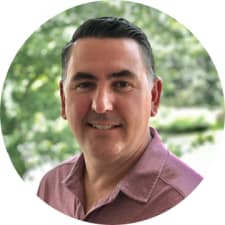Practice Your Craft Now, While No One Is Looking

Last week I was lucky enough to be invited to speak to 35 colleagues as part of an Emerging Leaders Retreat. It was a wonderful two-day event designed to bring together high-performing individuals to learn, network, and collaborate.
The session topics were geared towards helping them grow and develop into our next generation of leaders while propelling their careers to the next level. Example sessions were “Executive Communication”, “Influencing Without Authority”, and “Crafting a Strategy and Vision” among others.
I was asked to give the talk on “Crafting a Strategy and Vision”. It was a natural topic for me given my role as Chief Product Officer. Much of the talk was aimed at the tactical methods I use to form our Product Strategy and Vision, then communicate it effectively. There are probably at least five posts I could write on that topic and I will in time.
For this post, I want to focus on the opening of the talk where I laid out what I like to call the “Career Farm League Time period”. The concept stems from a baseball analogy, but I think it can apply to almost any development-based activity where what we see in real life is the fully developed “finished product”. It was in the lab for many years before we were ever exposed to the finished product.
The idea is that when a baseball player gets to the majors, we’re seeing a fully developed output.
He developed his craft and skill over many years as a youth, in high school, and in the “Farm Leagues”.
He did this while no one was looking and became good in the background. When he arrived in the Major Leagues he was fully developed - ready to go and every improvement or challenge that he faces going forward will be done publicly. His days of private failures are over.
I wanted to convey to the emerging leaders that they should intentionally focus on their growth and areas of improvement during this time period over anything else. Intense development and learning should happen during the Farm League time period so when they get to the Major League portion of their career it’s all about high-level execution and gradual improvement.
This is an oversimplification for the sake of this post (and the talk) but I think the idea is sound. In reality, learning can and should occur continually throughout your career. However, I believe you can significantly speed things up if you’re intentional about several focus areas during the Farm League period.
What Are The Most Important Career Fram League Focus Areas?
Understand Your Core Skills
Start by thinking about what you’re naturally good at. I tend to think of these as the things you were born with, the things you knew you were good at back in elementary school. This is not “I’m good at design”, it’s more like “I’m good at distilling complex concepts into simpler ideas”.
Other examples of core skills include being a good communicator, being a natural leader, being a structured thinker, having a knack for selling, or having a mind for numbers. There are many more and none are right or wrong - the idea is to understand what yours are and more importantly - are not. The goal is to work on the weaknesses, you won’t need to be amazing at everything to be successful so don’t overthink it, I suggest identifying your top and your bottom ones.
Be Intentional About Where You Need To Improve
This is where we intentionally focus on developing the bottom core skill. I like to use the word “intentional” because this isn’t something we “try” or “hope” to do - we need to focus on it. Think about what that skill is.
How can we work on it almost every day? Think of this improvement like exercise. If you want to meaningfully improve your fitness, you know what that would require. This is the same - look for specific ways to improve this skill a little every day.
Plan and Attack The Improvement Areas
Rise and repeat the process above for all of the core skills that need improvement. I’d suggest you work on one at a time, maybe one per year - for a year. Again like fitness, don’t try to immediately improve everything, pick one thing and go deep on it.
Track your improvement and your progress. Build a plan and think of it as a plan for progress. The plan will likely require you to spend time at work improving as part of your job’s day-to-day and it will likely require time outside of work. There’s no rule on how much effort will be required to get better, but if someone were to ask you what you’re doing and how you’re doing it - you should have a story to tell. This will change every year but if you want to see real results you need to map this out and stick to it.
Measure and Repeat Every Single Year
Every year will be different. Your areas of improvement will change and evolve, and that’s a good thing! However, your process for how you improve and measure your progress should not change much. For example, a core skill focus area for me a few years back was to improve my preparation process for keynoting and presenting.
I wanted to reduce the time it took me to outline a talk, write the content, design the slides and rehearse. The improve this I started to track the hours against these items (every time I do them) to look for where I could improve. I write down what went well, what took too long, and what I will do next time to improve. I still do this today to continually measure and improve. This is true for several other core skill improvement areas I’m also working on.
Think About The Outcomes
The final idea that I wanted to discuss was the outcomes of practicing now while no one is looking. What are the real benefits of getting better in the Farm League period of our careers?
The obvious one is that it’s the best way to prepare you for what’s next. I like to think that your improvement areas today should be setting you up for your bigger role tomorrow. Can you articulate what that is? What would it take to get there? What you would honestly need to improve to make that happen?
Final Note On Income, Title, and Age-Based Goals
For some reason early in our career, we have a natural tendency to set income, title, or age-based achievement measurements and goals. We need to resist this tendency. These are statements like “I want to make six figures by the time I’m 30” or “I want to be a Vice President by the time I’m 40” etc.
Here’s my issue with these types of goals: income and titles are lagging indicators of your progress. Or put differently, they are the result of doing much of what’s laid out in this post. Instead of setting goals that are based on lagging indicators, set your goals on leading indicators. The leading indicators are the work required to improve your core skills.
The core skill improvement will lead to the income and title outcome you’re looking for. So next time you’re thinking about how much money you want to earn next year, instead train yourself to think about your plan for improving your core skills. The income and title will follow I promise.

